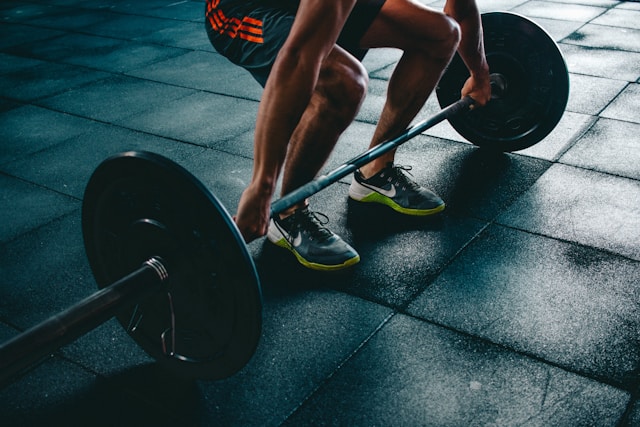
Training at the Gym
Training at the gym offers a structured and efficient way to achieve your fitness goals, whether it’s building muscle, losing weight, or improving overall health. With access to a variety of equipment and classes, gyms provide a conducive environment for a comprehensive workout. This article covers essential aspects of training at the gym, from creating a workout plan to maintaining motivation and proper etiquette.
Setting Your Fitness Goals
Identify Your Objectives
Before you start training at the gym, it’s important to identify your fitness goals. Are you looking to increase muscle mass, lose weight, improve cardiovascular health, or enhance overall fitness? Clearly defined goals will help you tailor your workout plan and track your progress effectively.
Create a Workout Plan
Once you have your goals in mind, create a workout plan that aligns with them. A balanced workout plan typically includes strength training, cardiovascular exercises, and flexibility work. Consult with a fitness trainer if you’re unsure how to structure your plan. They can provide professional guidance and help you create a program that suits your needs and abilities.
Essential Gym Equipment
Strength Training Equipment
Strength training is crucial for building muscle and improving overall strength. Gyms offer a wide range of equipment for this purpose, including:
- Free Weights: Dumbbells, barbells, and kettlebells.
- Machines: Leg press, chest press, and lat pulldown machines.
- Benches: For performing various exercises like bench press and dumbbell flyes.
Cardiovascular Equipment
Cardiovascular exercises are essential for heart health and calorie burning. Common cardio equipment includes:
- Treadmills: For running or walking.
- Ellipticals: For a low-impact workout.
- Stationary Bikes: For cycling indoors.
- Rowing Machines: For a full-body cardio workout.
Flexibility and Balance Equipment
Incorporating flexibility and balance exercises into your routine can improve your overall fitness and prevent injuries. Equipment for these exercises includes:
- Yoga Mats: For stretching and floor exercises.
- Stability Balls: For core exercises and balance training.
- Resistance Bands: For added resistance in various exercises.
Maximizing Your Workout
Warm-Up and Cool-Down
Always start your workout with a warm-up to prepare your body for the exercises ahead. A proper warm-up increases blood flow to your muscles and reduces the risk of injury. Similarly, end your workout with a cool-down to help your body recover and prevent stiffness. Incorporate light cardio and stretching into your warm-up and cool-down routines.
Proper Form and Technique
Using proper form and technique is crucial for preventing injuries and maximizing the effectiveness of your exercises. If you’re new to the gym or unsure about certain exercises, consider hiring a personal trainer or attending fitness classes. They can teach you the correct form and help you avoid common mistakes.
Progressive Overload
To continue making progress and achieving your fitness goals, gradually increase the intensity of your workouts. This principle, known as progressive overload, involves increasing the weight, reps, or sets of your exercises over time. It challenges your muscles and encourages growth and strength development.
Maintaining Motivation
Set Realistic Goals
Setting realistic and achievable goals is key to staying motivated. Break down your larger fitness objectives into smaller, manageable milestones. Celebrate your achievements along the way to keep yourself motivated and committed to your fitness journey.
Track Your Progress
Keeping track of your progress can help you stay motivated and see how far you’ve come. Use a workout journal, fitness apps, or other tracking methods to log your exercises, weights, and reps. Regularly reviewing your progress can boost your confidence and encourage you to keep pushing forward.
Find a Workout Buddy
Training with a workout buddy can make your gym sessions more enjoyable and hold you accountable. A workout partner can provide support, encouragement, and a bit of friendly competition. They can also make your workouts more fun and help you stay consistent.
Gym Etiquette
Respect Others’ Space
Gyms can get crowded, so it’s important to respect others’ space and share equipment. Avoid hogging machines or weights and be mindful of others waiting to use the same equipment. Wipe down machines and benches after use to maintain hygiene.
Follow the Rules
Every gym has its own set of rules and guidelines. Familiarize yourself with these rules and follow them to create a positive environment for everyone. This includes re-racking weights, using lockers for your belongings, and adhering to time limits on cardio machines.
Be Considerate
Be considerate of others by keeping noise levels down and not using your phone excessively in workout areas. Allow others to focus on their workouts without unnecessary distractions. A respectful and considerate attitude contributes to a positive gym atmosphere.
Conclusion
Training at the gym is a highly effective way to achieve your fitness goals and improve your overall health. By setting clear goals, creating a balanced workout plan, and using proper form, you can maximize your gym sessions. Maintaining motivation, respecting gym etiquette, and staying consistent with your workouts will help you on your journey to a healthier, stronger you. Whether you’re a beginner or an experienced gym-goer, these tips can enhance your training experience and lead to lasting fitness success.

